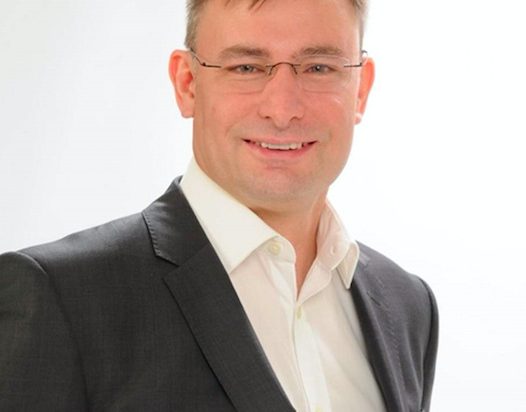Programming Meets Patient Care: Why This Doctor Turned to Coding to Improve Healthcare

Mathew Hall has always helped people. As a 15-year veteran of an emergency room at the Princess Royal University Hospital in the UK, he’d spent his career saving lives and caring for patients in their times of greatest need.
But after two decades living in South London with his American wife and two children, Mathew embarked on a huge midlife change. “My wife wanted to go home” Mathew said, “and after the stress of the ER and living in a big city, I was ready for change as well”. So, the family relocated from the UK to the US, and to his wife’s hometown, Cleveland Ohio.
But the mid-life change didn’t end with just a transatlantic move.
A fresh start
On top of his love of medicine, Mathew had always had a quiet passion for computers and coding. So, when faced with the need to re-license and go through residency—for a second time—in order to practice in the US, Mathew decided to switch career and become a software developer.
“As a kid, I had enjoyed tinkering with an early microcomputer from my dad’s office. This was in the pre-internet days, and although I got hooked on programming, school, college and then a busy medical career got in the way, and I didn’t write a single line of code for another 30 years.”
But now he saw an opportunity to retrain.
Learning the ropes
“The IT world had moved on immeasurably since my early programming experiences and I needed a course that began with the basics but was also fully up to date and taught the in-demand languages and skills in use today.”
“After researching the various options, the Case Western Reserve University Coding Boot Camp stood out as an ideal fit for me” Mathew said. “It was very structured with a strong emphasis on hands-on coding experience through in-class exercises, homework assignments, and group projects.”
“I had a great experience at the boot camp,” he said. “It lived up to its promise, and I learned much more than I had expected.” Starting with the front-end, he learned HTML, CSS, and JavaScript, and then to the back end with node.js, database integration, and Heroku deployment.
“But it was tough and the pace was very quick,” Mathew emphasized. To keep up, he needed to put in at least the recommended 20 hours of study time outside class every week of the course—often even more. “But I learned that if you put in the effort, the boot camp gave you the support you needed to succeed.”
“One of the best aspects of the course for me was collaborating on projects and working with diverse people with different skills. Medicine, and the ER in particular, is very hierarchical,” Mathew said. “In the boot camp, I learned how to code as an equal member of the team. That was something I hadn’t done in a while.”
Putting his knowledge to the test
For Mathew, the third and final group project of the course was a turning point. With his teammates, he created an app aimed at helping physicians better manage the care of Parkinson’s disease patients by gathering data on symptoms between clinic visits. The data is then analyzed and made accessible to physicians in an easy-to-use format—saving time and leading to more informed treatments.
“I wanted to combine medicine and IT to make a difference in the healthcare world,” Mathew said. “Hospitals—and healthcare in general—are way behind many other industries in terms of software. Technology should connect doctors to their patients—not serve as a barrier between them.”
Mathew and his colleagues presented the application at the course’s final Demo Day. “In the boot camp, we were taught that we had to do more than just demonstrate our app. We also had to identify the problem that it solves—that’s the crux of a good technology presentation,” Mathew said. “It doesn’t matter how passionate you are about what you have built. If it doesn’t solve a real problem, nobody will care.”
The project presentation received great reception from colleagues and industry professionals. And Mathew and his group were encouraged to think of how to use the app as the basis for a business.
Merging two passions
Supported by the feedback, Mathew and a fellow boot camp grad, Shi-Kwan Tan, decided to go all in with their healthcare app.
Since graduation, the pair have improved and upgraded the app, working with doctors to tailor it to their specific needs. At the same time, they’ve been making connections in the Cleveland innovation scene to help them launch their startup tech business.
Mathew’s interest and passion for his new endeavor are rooted in his experience caring for people as an ER physician. Now, with the new knowledge and skills acquired at the boot camp, he can help a wider audience—and improve healthcare as a whole.

 Live Chat
Live Chat